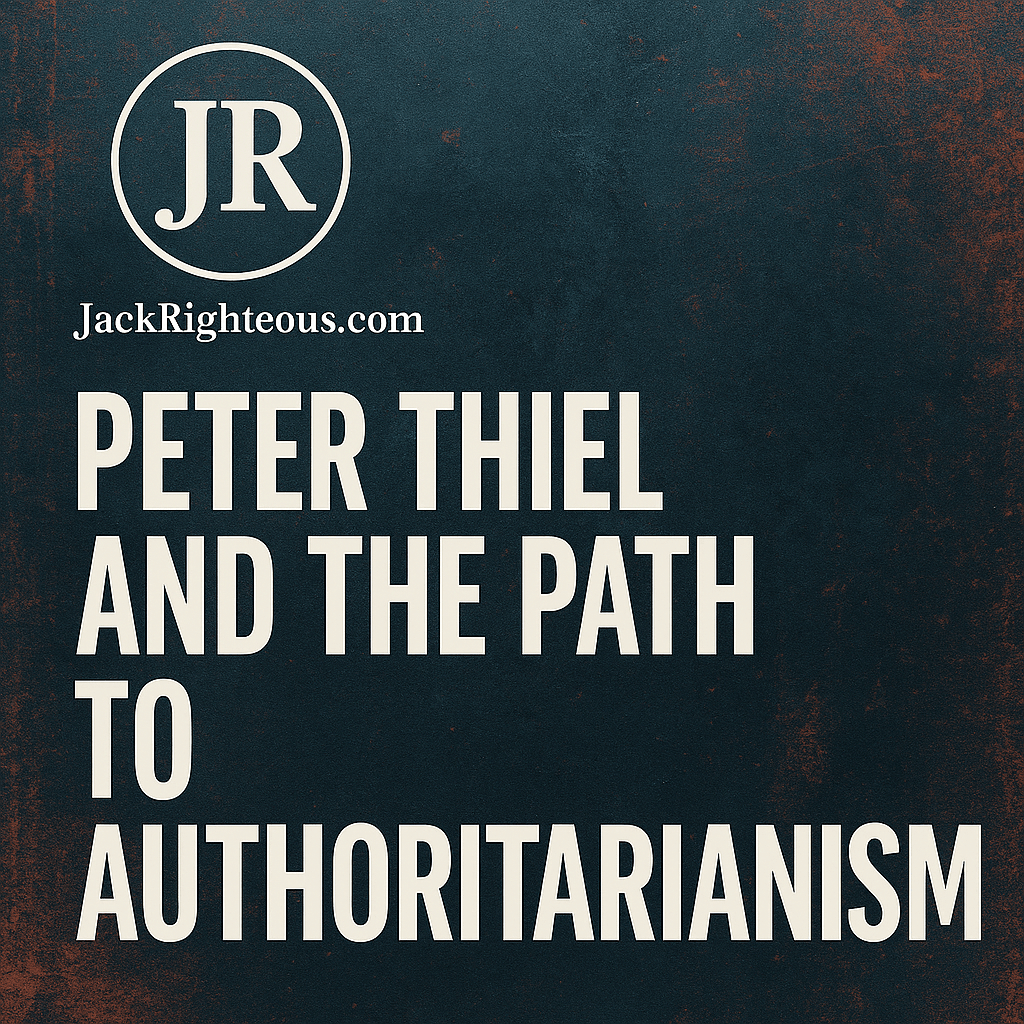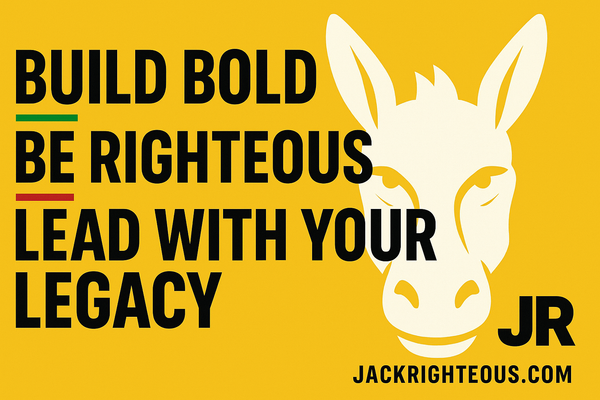
Peter Thiel’s Hidden War: How One Billionaire is Engineering the Authoritarian Future
Gary Whittaker
Peter Thiel’s Hidden War: How One Billionaire is Engineering the Authoritarian Future
By Jack Righteous
While the public eye has focused on visible donors like the Coors and Bradley families, the deeper architecture of Project 2025—and the dystopian future it’s planning—bears the fingerprints of Peter Thiel, the PayPal founder and Silicon Valley billionaire who has long telegraphed his disdain for democracy.
“I no longer believe that freedom and democracy are compatible.”
That quote comes from a 2009 essay by Thiel, and it’s not just an old thought experiment. It’s the philosophical core of his political investments. Thiel believes that America’s pluralistic, regulatory democracy must be replaced by a strong executive—run by the “right kind” of people—and that technology, surveillance, and disruption are the tools to make that happen.
The Institutional Web: Claremont, Heritage, Federalist Society
While Thiel is not named in the official Project 2025 coalition donor rolls, his fingerprints are all over its intellectual and strategic foundations:
- Claremont Institute – Thiel has funded Claremont directly and employs many of its fellows. This think tank—self-described as pro-Western, anti-modern, and anti-egalitarian—produced the now-infamous “Flight 93 Election” essay that argued for the suspension of democratic norms to preserve civilization. Claremont is a Project 2025 coalition partner.
- Federalist Society – Thiel has bankrolled figures closely aligned with Leonard Leo, the Federalist Society’s architect who now steers the Marble Freedom Trust, which received $1.6B from Barre Seid and funds many Project 2025 orgs.
- Heritage Foundation – While no direct donation is disclosed, Thiel-backed staffers, alumni, and ideological allies now populate Heritage’s senior ranks and policy initiatives.
Kingmaker: J.D. Vance and the New Christian Nationalist Elite
In 2021, Peter Thiel poured $15 million into a Super PAC supporting J.D. Vance, then a struggling Ohio Senate candidate. The move was not just a political bet—it was a hand-selected ideological investment. Vance had rebranded himself from Trump critic to Trump loyalist, embracing nationalist, religious-right rhetoric in lockstep with Thiel’s worldview.
After Vance’s victory, he became Trump’s VP pick in 2024. His policy proposals echo Project 2025’s ethos: dismantling federal agencies, centralizing executive power, and eroding civil rights protections under the guise of “order” and “tradition.”
Behind the scenes, Thiel helped shape Vance’s messaging, funding his former venture capital firm, and ensuring that allies like Blake Masters (another Claremont-aligned candidate) remained part of the rising theocratic wave.
Trump, Tech, and the Administrative State
Peter Thiel advised Donald Trump during the 2016 transition. He brought in key figures like Palantir co-founder Alex Karp to advise on surveillance, ICE data sharing, and border enforcement systems—precursors to what Project 2025 now wants to nationalize and expand.
Sources inside the MAGA policy orbit have said that Thiel was instrumental in Trump’s early adoption of “deep state” rhetoric. Project 2025’s lead drafters—like Russell Vought—now push for the full weaponization of the DOJ and removal of civil service protections, turning the U.S. government into a tool of retribution and religious “restoration.”
Media and Control Infrastructure: Palantir, Rumble, Substack
- Palantir – Thiel’s data analytics company has lucrative government contracts and a documented history of working with ICE. Project 2025 wants to expand federal tech surveillance powers.
- Rumble – Thiel was an early investor in this “free speech” platform, now home to extremist influencers and right-wing agitators. Many Project 2025 voices use Rumble as their broadcast base.
- Substack – While not a creator, Thiel’s influence is felt through the migration of conservative writers into monetized, decentralized echo chambers that resist fact-checking and public accountability.
Thiel’s Vision vs. the Constitution
The danger isn’t just that Peter Thiel is funding candidates. It’s that his worldview—anti-democratic, techno-authoritarian, post-liberal—is now embedded in the strategic documents of America’s largest right-wing policy operation. Project 2025 is not a break from his past. It is the culmination of it.
Whether he’s writing checks, shaping campaigns, or seeding intellectual movements, Thiel is actively laying the groundwork for a society ruled by elite technocrats, religious traditionalists, and surveillance capitalism. If that sounds dystopian, it’s because it is.
Why This Must Be Understood Now
Americans can no longer afford to be spectators. The alliance of wealth, religion, data, and ideology is already reshaping the state—and Thiel is one of its lead engineers. He operates from the shadows, but the consequences of his influence are out in the open. If we fail to understand the architecture, we may soon be forced to live inside it.

